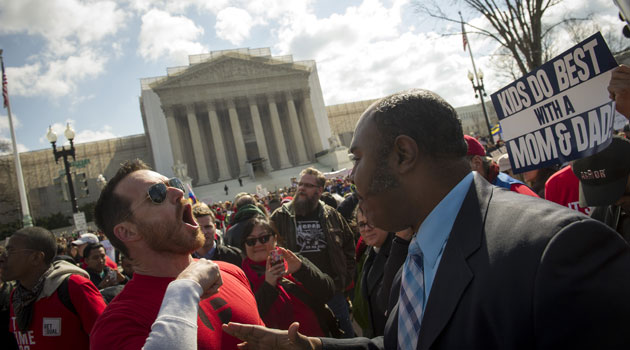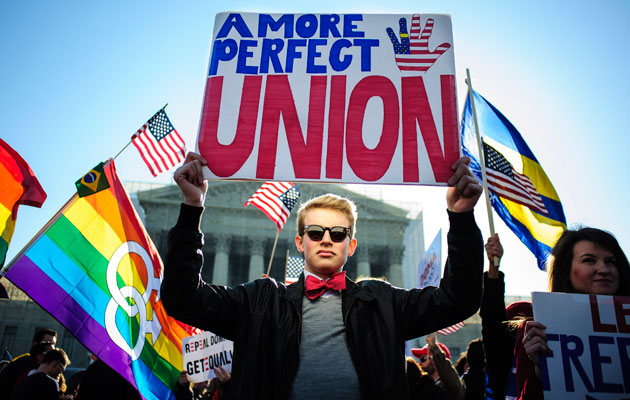In a 5-4 ruling Wednesday, the Supreme Court struck down the Defense of Marriage Act (DOMA), the 1996 law preventing the federal government from recognizing same-sex marriage. The majority opinion, written by Justice Anthony Kennedy, said that the law was tantamount to the “deprivation of the equal liberty of persons that is protected by the Fifth Amendment.”
There is a striking aspect to Kennedy’s surprisingly passionate opinion: He focuses directly on the children of same-sex couples. DOMA, he writes, “humiliates tens of thousands of children now being raised by same-sex couples. The law in question makes it even more difficult for the children to understand the integrity and closeness of their own family and its concord with other families in their community and in their daily lives.”
In a sense, this turns on its head one of the main bogeymen used by activists opposed to marriage equality: that gay marriage will somehow harm children and disrupt families. To the contrary, Kennedy argues that striking down DOMA will give dignity to same-sex families and help end the suffering of children caused by the current the law.
Just ahead of the decision, the American Spectator’s John Guardiano toed the conservative line, arguing in a post that same-sex marriage is “part and parcel of an overaching effort to undermine and deprecate traditional marriage and the traditional family.” (He noted the rise in single-parent homes and the problems caused by fatherlessness, and yet also admitted that rising divorce rates preceded any whiff of a marriage equality movement.)
But now, the high court’s decision—which holds the very sanctity of marriage and stability of family up as arguments in favor of marriage equality—puts the lie to these condemnations of the validity of same-sex relationships.
The other resonant theme in Kennedy’s decision is that of dignity.
“DOMA instructs all federal officials, and indeed all persons with whom same-sex couples interact, including their own children, that their marriage is less worthy than the marriages of others,” the decision says, going on to conclude that the federal statute “is invalid, for no legitimate purpose overcomes the purpose and effect to disparage and injure those whom the State, by its marriage laws, sought to protect in personhood and dignity.”
DOMA, writes Kennedy, was always about interfering with “the equal dignity of same-sex marriages, a dignity conferred by the States in the exercise of their sovereign power” and was “more than an incident effect of the federal statue. It was its essence.”
Striking down DOMA, in other words, is a victory for something basic and profound: dignity. Without equality there can be no dignity, and without dignity how can we expect same-sex marriages to flourish and the children of these marriages to prosper?
Marriage has been strengthened, not threatened, by today’s ruling. The American family, whether straight or gay, will ultimately be stronger for it.
















